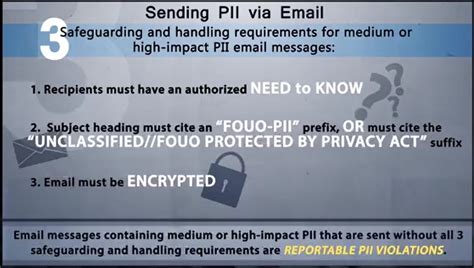hermes online pii_email_5b43808598f1b6efded6 | Hermes Verification Email I didn't request : r/Advice
$111.00
In stock
The cryptic string "hermes online pii_email_5b43808598f1b6efded6" might initially appear as a random jumble of characters. However, a deeper analysis, coupled with the context of Hermès online shopping, Personal Identifiable Information (PII), and the provided search queries, reveals a potential scenario involving compromised data, security concerns, and the need for heightened vigilance. This article aims to dissect the potential meaning behind this string, explore the related issues surrounding Hermès online transactions, discuss the importance of protecting PII, and offer practical advice for navigating the complexities of online shopping with luxury brands like Hermès.
Decoding the Enigma: PII and Hermès Online
The presence of "PII" (Personal Identifiable Information) within the string immediately raises a red flag. PII refers to any data that can be used to identify an individual, such as name, address, email address, phone number, social security number, financial information, and even IP address. In the context of online shopping, PII is collected during account creation, order placement, and payment processing.
The "email_5b43808598f1b6efded6" portion likely represents a unique identifier associated with a specific email message or a record within a database. This could be a tracking ID, a hash value, or an internal reference used by Hermès or a third-party service provider. The fact that it's included in the title suggests a possible concern that this specific email or the data associated with it may have been compromised or exposed.
Therefore, the complete string "hermes online pii_email_5b43808598f1b6efded6" strongly implies a potential security incident related to PII collected during online transactions with Hermès. This could involve:
* Data Breach: Unauthorized access to Hermès' systems or the systems of their third-party vendors, leading to the exposure of customer data.hermes online pii_email_5b43808598f1b6efded6
* Phishing Scam: A fraudulent email disguised as legitimate communication from Hermès, designed to trick users into revealing their PII.
* Account Compromise: Unauthorized access to a user's Hermès online account, potentially resulting in the theft of PII and fraudulent purchases.
* Internal Data Handling Issues: Inappropriate handling or storage of PII within Hermès' internal systems, potentially violating privacy regulations.
The Allure and Risks of Online Luxury Shopping: The Hermès Experience
Hermès, renowned for its exquisite craftsmanship and exclusive products, including the iconic Birkin and Kelly bags, has embraced the digital age with an online presence. While online shopping offers convenience and accessibility, it also introduces inherent security risks. The demand for Hermès products, coupled with their high value, makes them a prime target for cybercriminals.
The search queries provided highlight some of the common concerns and challenges faced by Hermès online shoppers:
* "How To Buy A Hermes Bag Directly On Hermes’ Website": This indicates a desire for a secure and authentic purchasing experience, bypassing potentially fraudulent third-party sellers.
* "Hermes payment link via email": This raises concerns about the legitimacy of payment links received via email, as phishing scams often utilize this tactic to steal financial information.
* "Hermes Verification Email I didn't request : r/Advice": This suggests a potential account compromise or an attempted phishing attack, prompting the user to seek advice on how to handle the situation.
* "How do I change information on .": This reflects a common need to update personal information within the online account, highlighting the importance of secure data management practices.
Protecting Your PII: A Multi-Layered Approach
Given the potential risks associated with online shopping, particularly with luxury brands like Hermès, it is crucial to adopt a proactive approach to protect your PII. Here's a multi-layered strategy:
1. Strong Passwords and Multi-Factor Authentication (MFA):
* Complexity: Create strong, unique passwords for your Hermès account and any other online accounts. Use a combination of uppercase and lowercase letters, numbers, and symbols.
* Uniqueness: Avoid reusing passwords across different websites. If one account is compromised, all others with the same password become vulnerable.
* Password Manager: Consider using a reputable password manager to securely store and manage your passwords.
* MFA: Enable multi-factor authentication (MFA) whenever available. This adds an extra layer of security by requiring a second verification method, such as a code sent to your phone, in addition to your password. Hermès may offer MFA; if so, activate it immediately.
2. Vigilant Email Awareness:
* Verify the Sender: Carefully examine the sender's email address. Look for any subtle discrepancies or misspellings that could indicate a phishing attempt. Legitimate Hermès emails will come from official Hermès domains.
* Suspicious Links: Be wary of clicking on links in emails, especially if they request personal information or direct you to a login page. Hover over the link to preview the URL before clicking. Ensure it directs you to the official Hermès website (hermes.com).
* Unsolicited Emails: Be cautious of unsolicited emails, especially those offering exclusive deals or requiring immediate action.
* Report Suspicious Emails: If you suspect an email is fraudulent, report it to Hermès and your email provider.
Additional information
| Dimensions | 8.8 × 1.9 × 2.3 in |
|---|







